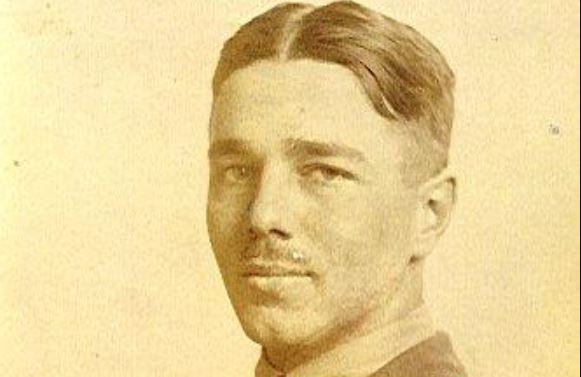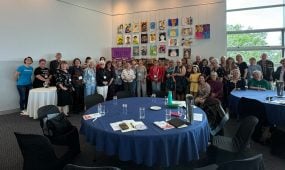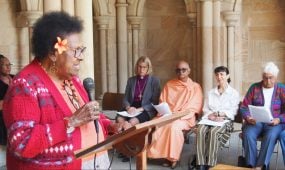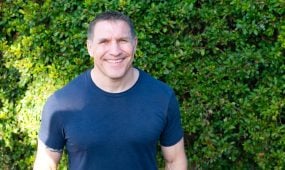"Near Golgotha strolls many a priest"
Reflections
“Seeing the Passion of Jesus as being played out in the everyday can heighten our response to those everyday situations. So the children of Gaza become one with the Holy Innocents and Christ loses limbs with Ukrainian soldiers. What are we called to do in response?” asks The Very Rev’d Dr Peter Catt

One ever hangs where shelled roads part.
In this war He too lost a limb,
But His disciples hide apart;
And now the Soldiers bear with Him.
Near Golgotha strolls many a priest,
And in their faces there is pride
That they were flesh-marked by the Beast
By whom the gentle Christ’s denied.
The scribes on all the people shove
And bawl allegiance to the state,
But they who love the greater love
Lay down their life; they do not hate.
Advertisement
By Wilfred Owen, “At a Calvary Near the Ancre (For Good Friday)”
Wilfred Owen was one of the World War I soldier poets. He was killed in action in November 1918 just one week before the Armistice. He was 25 years old.
In his late teens he spent time working for a Church of England vicar. This experience helped him develop a deep empathy for the poor and disadvantaged. He also became disillusioned with the Church’s inadequate response to the plight of the poor; particularly its reluctance to challenge the system that kept people poor.
Owen was among a number of poets who recognised the face of Christ in those who were being consumed by the war machine and used that imagery in their poems. At a Calvary Near the Ancre (For Good Friday) is one example of this.
The reference to the priests that stroll around Golgotha was to the clergy chaplains of the time who, being officer class, were disengaged from the men. This was the model of chaplaincy that was challenged by the new model of Chaplain found in the ministry of the priest-poet G A Studdert Kennedy. Kennedy came to be known as “Woodbine Willy” for his practice of moving amongst the men in the trenches handing out cigarettes and offering support. Kennedy saw the wounded men as embodying Christ.
Seeing the Passion of Jesus as being played out in the everyday can heighten our response to those everyday situations. So the children of Gaza become one with the Holy Innocents and Christ loses limbs with Ukrainian soldiers.
What are we called to do in response?
Editor’s note: First published in the St John’s Cathedral Weekly News on 18 March 2024.






